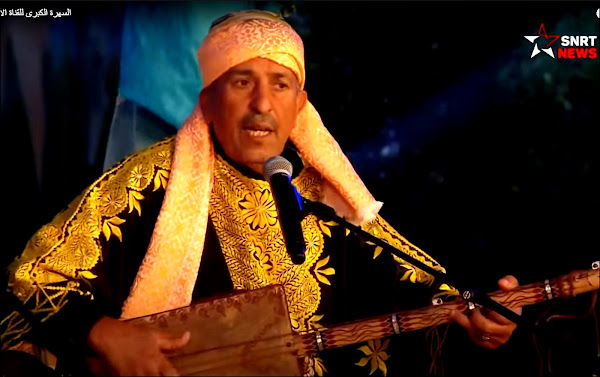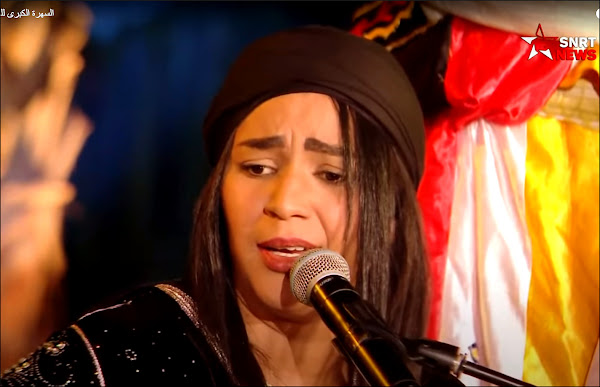...and the musicians were paid £800
Back in 2008 I curated what was probably the first and only broadcast of a complete lilal night healing ritual performed by the sub-Saharan musicians known as Gnawa. As a result of that broadcast, eight years later I was invited to a Gnawa trance ritual in Essaouira on Morocco's Atlantic coast. That lilal was a private devotional event which I was privileged to attend with a Moroccan Sufi friend. But like all musicians, the Gnawa rely on commercial performances for their income. That source of income was abruptly terminated by the Covid pandemic. Which has left many Gnawa musicians facing extreme hardship in a country where fiscal safety-nets are much more fallible than in the West, and as a result a priceless cultural tradition is at risk.
Now there has been a heartwarming attempt to alleviate, at least in part, the musicians' hardship. A UNESCO intiative led to 75 gnawan master musicians gathering in Essaouira in December for the filming of a two hour TV special that has just been aired on Morocco's Channel 1. The French Moroccan civil servant and politician Audrey Azoulay is Director-General of UNESCO and the second female to head the organization. She is the daughter of André Azoulay. He is a Moroccan Jewish politician who was born in Essaouira, a city with strong links to Judaism. As a senior adviser to King Mohammed VI of Morocco André Azoulay is a fervent champion of Essaouira and has published two books about the city.
All the master musicians were paid 10,000 Moroccan dirham (£800/$1000) and rank and file musicians 3500 dhs (£280/$400). Which may not seem much by Western standards, but to musicians who have had no income for two years it must be a very welcome payment - the average Moroccan salary is 60,000 dhs (£4800/$6000). My source reports that the concert was "like a big sadaqa" - sadaqa is a voluntary offering in the Muslim world.
The photos in my post are screen-grabs from the TV special. Contrary to the Western media's negative stereotyping of majority-Muslim countries, it is particularly pleasing to see women featuring in the performance, including a prominent young female soloist seen in the second photo. Above can be seen some of the women singers who I met at a 2016 music workshop for local women run by Sufi adept Ahmed Abdelhak Kaâb in Essaouira.
This impressively-produced Gnawa TV special is available on YouTube - the vernacular links by a Moroccan presenter are very brief. It is essential viewing, particularly for the armchair activists and cultural commentators who promote their own narrow and self-interested version of diversity in art music. Now watch via this link.













Comments
'I'm happy to read about this initiative for Gnawi musicians. It come coincidentally the day after I had happen to watch for the first time in years a rather old video on line of Robert Plant playing with a great Gnawa master fron Marrakesh, Hajj Brahim Belkani... As I watched Robert Plant singing--- and it's a nice piece actually-- I couldn't help wondering how much the Gnawa musicians were paid for that gig which was eventually included on a Led Zeppelin album.
I don't know if things have changed but traditional musicians or crafts people here generally do not benefit from even the paltry national retirement fund. So news of an initiative such as the one you shared is very welcome indeed. Thank you'.
https://www.youtube.com/watch?v=mdHzAo7fhLQ
Happy New Year!